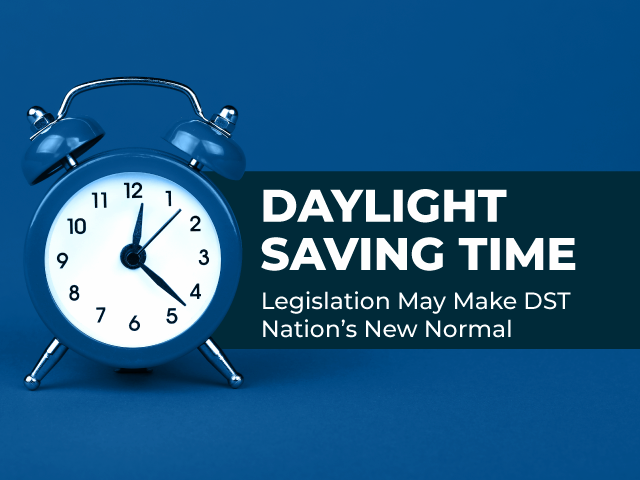-

First off, apparently it’s Daylight Saving Time, not Daylight Savings Time. Who knew, right?
Daylight Saving Time originated in 1916 in Germany, was quickly adopted by the United States in 1918, and was standardized across the country in 1966. For many, it has become routine to set our clocks forward an hour on the second Sunday of March, when DST currently begins, and backwards an hour on the first Sunday of November, when DST ends. The US Department of Transportation (DOT) governs DST all across the United States.
When daylight saving time ends, it gets darker earlier. This is partially what accounts for people feeling as if winter days are shorter and summer days are longer. Individuals have to leave their jobs after a long work day just to drive all the way home in the dark, which creates many risks in itself.
According to the National Safety Council, depth perception, color recognition, and peripheral vision are all impaired when driving at night. Drivers can also be temporarily blinded by bright headlights shining directly in their eyes. For these reasons, driving at night is inherently more dangerous than driving during daylight hours.
With many people across the nation criticizing DST every time it comes to an end, Marco Rubio, one of Florida’s current senators, proposed a bill to the Senate in March of 2021 called the Sunshine Protection Act. It unanimously passed the Senate about a week later, and if it passes the House and the President signs it, it will go into effect on November 5th of 2023.
The proposed bill, if signed into law, would make daylight saving time the ‘new, permanent standard time’.
Many states have wanted DST to be their permanent time for a few years now, but due to the Uniform Time Act that was passed in 1966, this was not allowed. The Uniform Time Act gives states the option to either take part in daylight saving time as it is currently established or be on standard time year-round. For any state to be permanently on daylight saving time, there would have to be an update to federal law, which is what the Sunshine Protection Act is trying to do.
Despite whether the Sunshine Protection Act passes or not, it is obvious that there are increased risks of car wrecks when it is dark outside. Since it gets darker earlier when DST ends, which happened on November 6th of this year, those risks have heightened. Here are a few things you can do to lower your risk of being in a car accident while driving at night:
- Headlights – Make sure your headlights are in working condition, de-fogged and clean so that you can see your surroundings at all times.
- Watch for eyes – Collisions between deer and motor vehicles roughly increase by 16% when daylight saving time ends. Even in the dark when animals are nearly impossible to see, the reflection of your headlights in an animal’s eyes is often noticeable and can indicate the presence of wildlife. Watch carefully for deer and other animals crossing the street. If you see eyes, slow down.
- Get some sleep – Driving at night increases the feeling of fatigue for some people, as they are driving when they feel they should be sleeping. Get adequate sleep before attempting any long drives or road trips.
- Do NOT drive under the influence – With all of the elements of normal driving that are impaired when driving at night, the last thing you should do is drive under the influence. This would impair you even further and could have catastrophic results. Call a friend, call an Uber, or find another solution.
The tips above may not prevent you from being in a car accident, but they will help lower the risk. We hope you don’t need hire us to be your car accident attorney, but if you do, we’re here to help. Call 800-800-4600 if you’ve been injured in an auto accident. Our team will work diligently to get you the money you deserve. We are available to take your call 24/7 and will initially complete a free consultation about your case to see if we can help. We help injured people and their families every day to get fairly compensated for their injuries.
Visit Kentucky & Tennessee Car Accident Lawyers to learn more. Control starts with a call.
Get In Touch Today!
We offer free consultations 24/7 and there will always be someone here to take your call. Call our personal injury lawyers today for a free consultation or fill out this form and we will contact you.
We serve clients across Tennessee and Kentucky and we have several offices throughout both states. See all of our locations and contact us today.


